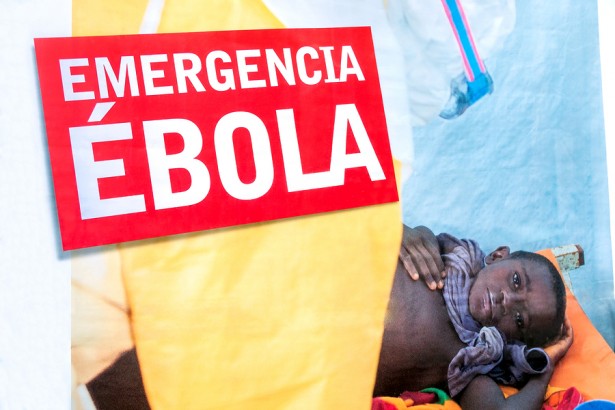A new report issued by the World Bank Tuesday shows that the organization has modified its decreases in its 2014 gross domestic product growth estimates for the three nations that were the most affected by the outbreak of the Ebola virus.
The World Bank stated that Guinea, Liberia and Sierra Leone are having their economies crippled by the Ebola epidemic. The report suggested that the three countries had been experiencing rapid economic growth in the last several years and even into the first half of 2014. It did note, however, that there is still positive growth projections for West Africa, but at lower rates.
Prior to the crisis, the World Bank released its 2014 GDP projections: Guinea had been forecast to grow its economy by 4.5 percent and now it has been revised downwards to 0.5 percent. Pre-crisis estimates for Liberia were 5.9 percent and now it stands at 2.2 percent. Sierra Leone was the hardest hit as its pre-crisis expectations were 11.3 percent and now its four percent.
Next year, Guinea’s economy will decline -0.2 percent, Liberia will grow only three percent and Sierra Leone will contract its economy by negative two percent.

“In Liberia, where there are signs of progress in containing the epidemic and some increasing economic activity, the updated 2015 growth estimate is 3%, an increase from 1% in October but still less than half the pre-crisis estimate of 6.8%,” the bank said in its report. “These latest projections imply forgone income across the three countries in 2014-15 totaling more than $2 billion. … [If] the epidemic spreads into neighboring countries, some of which have much larger economies, the cumulative two-year impact could reach US$32.6 billion by the end of 2015—almost 2.5 times the combined 2013 GDP of the core three countries,”
World Bank President Jim Yong Kim launched a two-day visit Monday to West Africa in order to examine the impact of Ebola. He said in a statement that the report shows why the primary objective for the international community should be zero Ebola cases. Kim did point to signs of progress, but if the epidemic persists then the impact on human lives and the overall economy “will only grow more devastating.”
“As we accelerate the immediate health response, the international community must also do everything we can to help the affected countries back on the road to economic recovery and development,” Kim posited.
The organization will be allocating $1 billion in financing for the nations hit hardest by Ebola.
As of Nov. 28, 2014, there have been 6,334 deaths and close to 17,000 Ebola cases. This has caused the shutdown or suspensions of markets, schools, hospitals, cross-border trade and airline flights.
Doctors Without Borders warns of slow response
At around the same time as the World Bank issued a report, Doctors Without Borders also commented on the situation and accused the world response as being too slow.
In a statement released Monday, the organization explained that foreign governments have been focusing entirely on financing and constructing case management structures, while the staff requirements have been left up to local healthcare facilities, national governments and non-governmental organizations, which it feels is inadequate.
Instead, the group wants countries to deploy biological-disaster response teams, something it has called for repeatedly.
“People are still dying horrible deaths in an outbreak that has already killed thousands,” said Dr. Joanne Liu, MSF international president, in a statement. “We can’t let our guard down and allow this to become double failure, a response that was slow to begin with and is ill-adapted in the end.”




